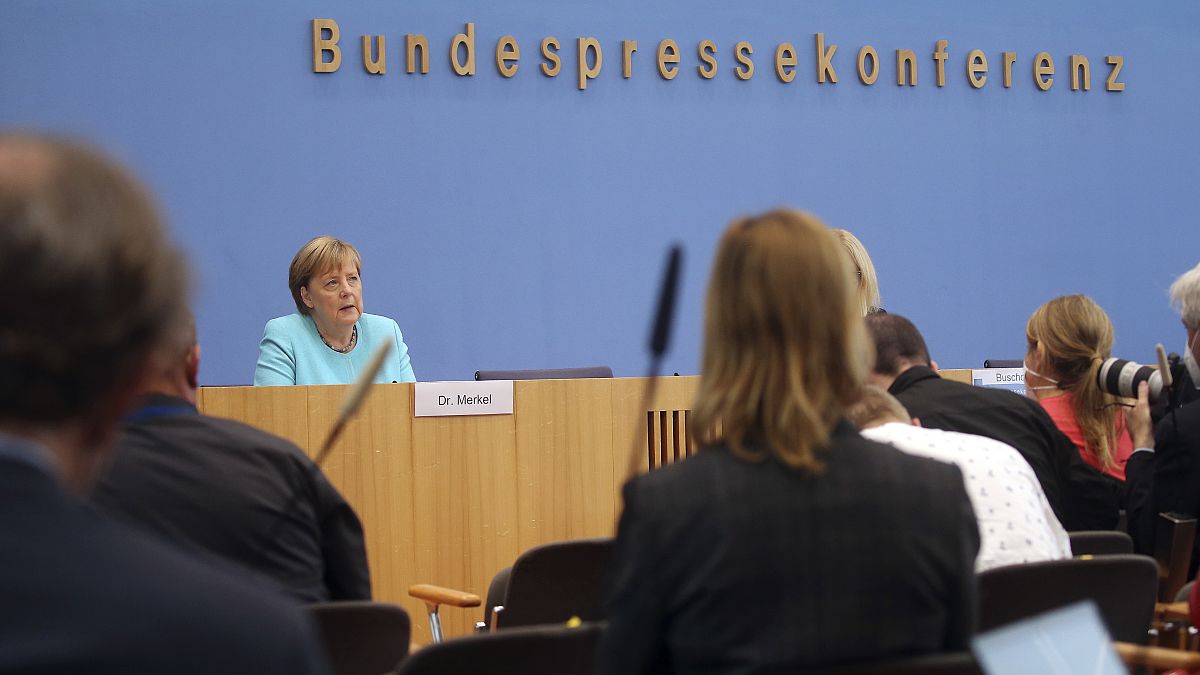The German government is considering imposing a health pass, similar to those announced in France and Italy, should COVID-19 cases rise in the coming months.
German Chancellor Angela Merkel’s chief of staff has warned that restrictions for unvaccinated people may be necessary if case numbers reach new heights in the coming months.
But Helge Braun said in an interview with the newspaper Bild am Sonntag that he doesn’t expect another coronavirus-related lockdown in Germany.
Braun said that unvaccinated people may be barred from entering venues like restaurants, movie theaters and stadiums “because the residual risk is too high.”
Braun said getting vaccinated is important to protect against severe disease and because “vaccinated people will definitely have more freedoms than unvaccinated people.”
Braun said that such policies would be legal because “the state has the responsibility to protect the health of its citizens.”
Germany’s vaccine efforts have slowed in recent weeks and that has led to discussions about how to encourage those who haven’t yet received a vaccine to do so.
More than 60% of the German population has received at least one dose while over 49% are fully vaccinated.
The introduction of a health pass and mandatory vaccination for those in certain professions in France saw a sudden rise in uptake of vaccination, with people deciding to take the jab in order to continue being able to enter restaurants and other cultural venues.
The pass attests that the holder has either been fully vaccinated, has tested negative over the previous 24 hours or has recovered from COVID during the previous six months.
The move has led to protests in France, with tens of thousands taking to the streets on Saturday for the second weekend in a row.
Similar protests have occurred in other European countries, including a large gathering in central London on Saturday in which speakers espoused conspiracy theories about vaccines and lockdowns to crowds.
Delta variant spreading in Germany
With the highly transmissible delta variant spreading in Germany, politicians have debated the possibility of requiring vaccination for specific professions, including medical workers. No such requirements have been implemented for now.
During a recent visit to the Robert Koch Institute, the government run disease control agency, Merkel ruled out new vaccine requirements “at the moment." The government would prefer to focus on encouraging vaccination for the time being, she said.
Still, she added, “I’m not ruling out that this might be talked about differently in a few months either."
Winfried Kretschmann, governor of the southwestern state of Baden-Württemberg, noted Sunday that the delta variant and others that may emerge could make vaccine requirements more attractive down the line.
While there are no current plans to require people to get vaccinated, he told the German news agency DPA, “I can't rule out compulsory vaccinations for all time.”
Others immediately pushed back against Braun's comments on Sunday, warning against freedoms and rights based on one's vaccination status.
“Of course we need incentives to reach the highest possible vaccination rate,” Marco Buschmann, parliamentary group leader for the pro-business Free Democrats, told the RedaktionsNetzwerk Deutschland newspaper group.
Still, he said, if it's true that unvaccinated people who have been tested or recovered from the virus pose no greater danger than vaccinated people, to impose such restrictions on the unvaccinated "would be a violation of their basic rights.”
